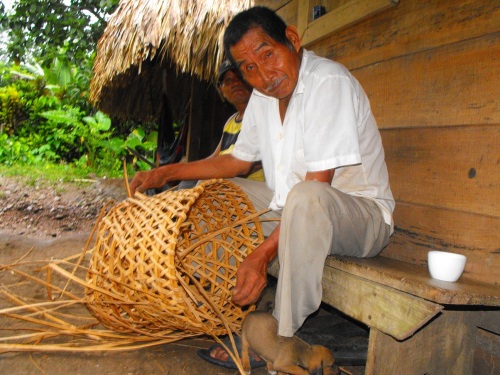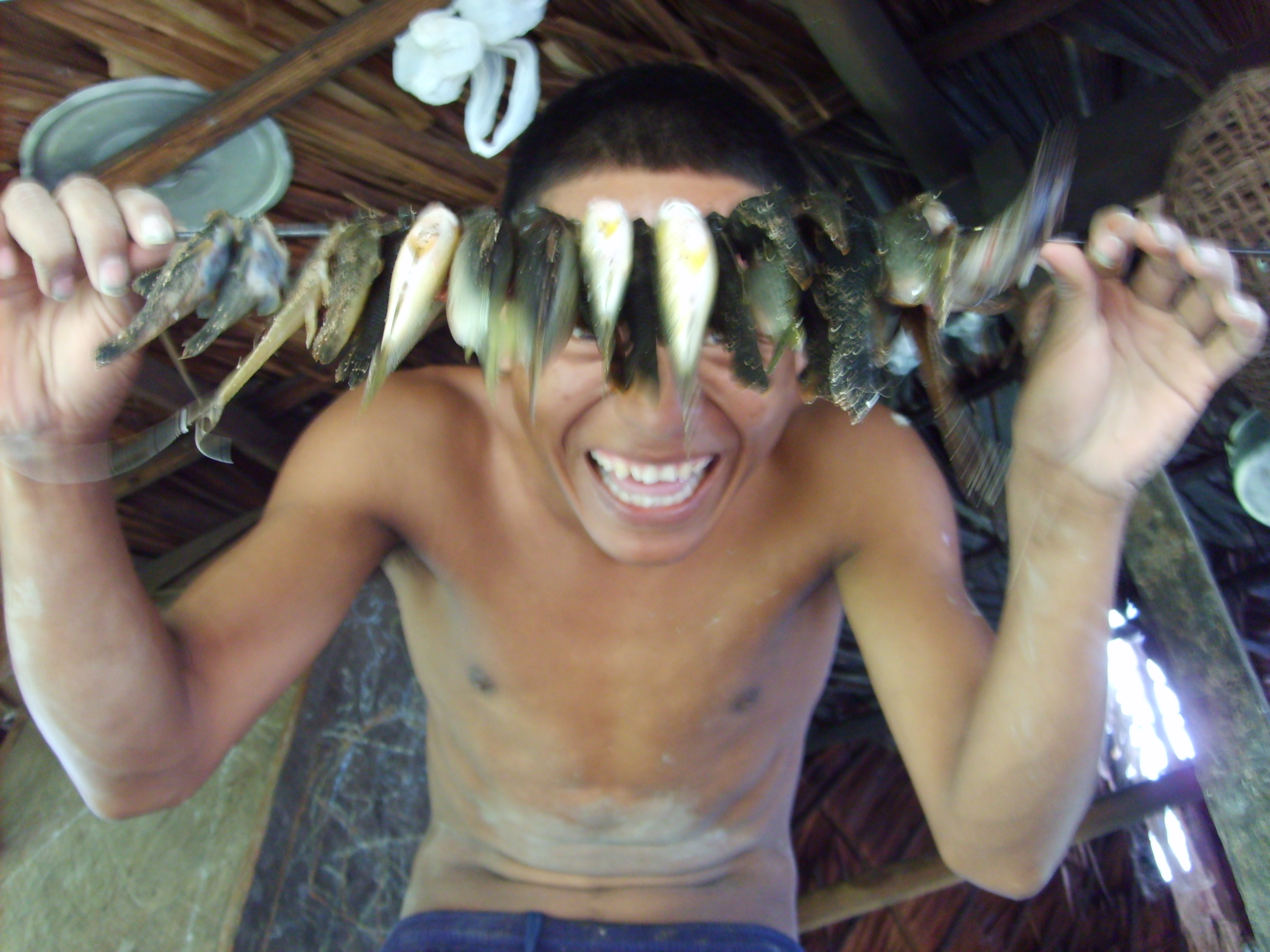Starting in the late 1700´s, South Carolinians have been referred to as sandlappers. According to some accounts, George Washington coined the term in 1791 in reference to people living in the lowland and piedmont areas which were so poor they ate clay to supplement their dietary mineral intake.
 José Gaitán is almost 76 years old. Those are his hands weaving the basket at the top of our webpage. He marvels that my Grandmother, who turned 90 yesterday, helped pick up this strange new food he is eating (a pecan), and I´m not sure he believes me when I say that she still drives a car. He has stayed at our house for the last 5 months taking care of it, supposedly, which is next door to his son´s house, and now we are roommates. His health has been failing for the last 10 years, and he doesn´t see or hear very well. At this point, he can no longer weave hats either, and he´s left the gas stove on twice already since I´ve been back. I think he enjoys the indoor faucet, the shower, the composting toilet, and the canned food we left for him. He grinned and played with the light switch for several minutes when I showed him how to work it and tried to explain the small panel I had placed on the roof. I felt dumb as he marveled at the can opener after I returned, and I realized that I had not taught him how to use it. He described it as ¨pura ciencia¨ [pure science] and declared it far superior to opening cans with a knife.
José Gaitán is almost 76 years old. Those are his hands weaving the basket at the top of our webpage. He marvels that my Grandmother, who turned 90 yesterday, helped pick up this strange new food he is eating (a pecan), and I´m not sure he believes me when I say that she still drives a car. He has stayed at our house for the last 5 months taking care of it, supposedly, which is next door to his son´s house, and now we are roommates. His health has been failing for the last 10 years, and he doesn´t see or hear very well. At this point, he can no longer weave hats either, and he´s left the gas stove on twice already since I´ve been back. I think he enjoys the indoor faucet, the shower, the composting toilet, and the canned food we left for him. He grinned and played with the light switch for several minutes when I showed him how to work it and tried to explain the small panel I had placed on the roof. I felt dumb as he marveled at the can opener after I returned, and I realized that I had not taught him how to use it. He described it as ¨pura ciencia¨ [pure science] and declared it far superior to opening cans with a knife.
José´s first paying job was cutting down mangroves with an axe. He earned 8 nickels a day. A shirt cost $2.50. Pants $3.00. Food was ¨cheap¨. He saw someone reading at age 15 and decided to invest one nickel in a pencil and another in a notebook, and he learned to read and write somewhat, but he never received any formal education. In the evenings, we talk about theology and sometimes he tells a story…
When José was a child, he ate dirt. His mother, the family disciplinarian, tried to break him of this malicious habit. He was forced to drink tobacco infused urine as punishment for eating dirt, which he elected over being beaten, but it was no use. José continued to eat dirt. At about age 8, José´s conscious (with the help of his parents and numerous siblings) convicted him to feel that dirt eating was an undesirable behavior that must be changed. Therefore, José, at that young age decided, ¨today I´ll eat dirt, but tomorrow I will not.¨ So for a time, José would eat dirt one day and not the next. With this successful exercise in self-control under his belt, José decided that he would now go two full days without eating dirt before eating it again. This transition was also successful and, gradually, he increased to 8 days without eating dirt and then to total abstinence from dirt eating. It was a milestone.
What seemed to stand out for José in this chapter of his life was the very young age at which he actively implemented a program of discipline and self-control in order to achieve his goal as well as the self-awareness that accompanied decision-making process.
What stood out for me was that he was so poor he ate dirt. I shared the SC sandlapper history and José nodded, ¨Yes, there were many of us children to feed.¨
We then had a good chuckle that one of our neighbors, older than José, had tried to convince him the other day to wash his face with urine to cure his headache. Culture, belief, and practice continue to change, and while navigating this environment with understanding, patience, and respect here in Panama can be challenging for us, it affords many valuable opportunities to peer into the idiosyncracies of our own culture and understand who we are.


amazing